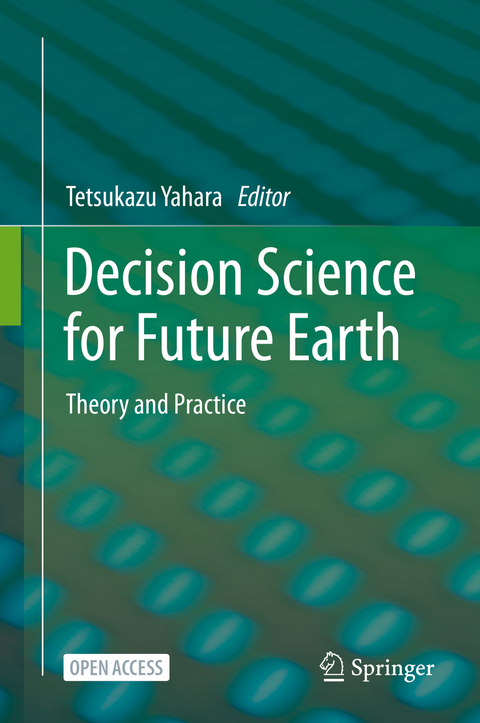
Decision Science for Future Earth
Springer Verlag, Singapore
978-981-15-8631-6 (ISBN)
Tetsukazu Yahara Kyushu University, Fukuoka, Japan. Tetsukazu Yahara is a former co-chair of the bioGENESIS core project of DIVERSITAS, the international program on biodiversity science that contributed to the foundation of Future Earth. He has been active in the fields of plant evolutionary biology and conservation ecology for many years and, more recently, has been leading transdisciplinary research on the environment, disasters, health, governance, and human cooperation, as the director of the Institute of Decision Science for a Sustainable Society (IDS3) at Kyushu University.
Part 1. The conceptual framework of decision science for a sustainable society.- Chapter 1. Decision science for Future Earth: How can we transform our society to a better future?.- Part 2. Lessons learned from trans-disciplinary studies in local communities.- Chapter 2. How can we develop a co-design, co-production, and co-delivery process toward a sustainable local society? Comparative study on transdisciplinary research projects.- Chapter 3. Lessons learned from co-design and co-production processes for a mobile health check-up research project in Jaipur India: Case study of the Portable Health Clinic, 2016-2018.- Chapter 4. Sustainability of micro hydropower generation in a traditional community of Indonesia.- Chapter 5. Conflict of legitimacy over tropical forest lands: Lessons for collaboration from case of industrial tree plantation in Indonesia.- Chapter 6. Sustainable community co-development through collaboration of science and society: Comparison of success and failurecases on Tsushima Island.- Part 3. Sustainable natural resource management: Theory and Practice.- Chapter 7. Theoretical models as a tool to derive management strategies for sustainable natural resource management.- Chapter 8. Environmental concerns of the pulp and paper industry: Focusing on household and sanitary paper products.- Chapter 9. Contribution of Community-based ecotourism to forest conservation and local livelihoods.- Part 4. Co-designs in a disaster recovery process: Case studies in the area affected by the Kumamoto earthquake.- Chapter 10. Oral care that supports healthy lives as a case study of the Kumamoto Earthquake.- Chapter 11. Experiences of university student volunteer activities to revitalize the area affected by the Kumamoto Earthquake.- Chapter 12. Attempt to develop high-value rice in the Shimojin District, Mashiki Town, Kumamoto Prefecture: Transition into sustainable local community using disaster recovery from the 2016 Kumamoto Earthquakes as a branding strategy.
| Erscheinungsdatum | 05.02.2021 |
|---|---|
| Zusatzinfo | 43 Illustrations, color; 37 Illustrations, black and white; XI, 251 p. 80 illus., 43 illus. in color. |
| Verlagsort | Singapore |
| Sprache | englisch |
| Maße | 155 x 235 mm |
| Themenwelt | Studium ► Querschnittsbereiche ► Prävention / Gesundheitsförderung |
| Naturwissenschaften ► Biologie ► Ökologie / Naturschutz | |
| Sozialwissenschaften | |
| ISBN-10 | 981-15-8631-4 / 9811586314 |
| ISBN-13 | 978-981-15-8631-6 / 9789811586316 |
| Zustand | Neuware |
| Haben Sie eine Frage zum Produkt? |
aus dem Bereich


